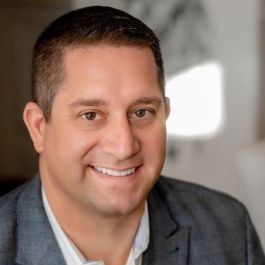The best leaders didn’t all start out that way.
In fact, they often make mistakes. But their willingness to learn, take accountability and adapt may just be what sets them apart from the other managers.
Built In Chicago asked two local leaders to share the lessons that changed the way they think about business. At Wintrust Financial Corporation, Chief Marketing Officer Jennifer Morris embraces leadership with a sense of humor.
“The tougher the goals are, the more important it is to keep your sense of humor on the journey to achieving them,” said Morris.
While Morris is laughing her way through the bank, Infutor Data Solutions CEO Gary Walter swears by a formula for what he calls “CEO balance.” Read on to find out more about these two executives’ add value to their teams, and their bottom line.
What’s an insight you’ve gained that has changed your perspective on the way you run the business?
I’ve learned to set hard, clear, bottom-line driven goals. Not only does this practice help individuals and teams prove their worth to the entire enterprise, it also sets the table for new opportunities and good work beyond the enterprise.
Prior to Wintrust, I raised money for my startup from individual investment bankers at Morgan Stanley and Goldman Sachs. At board meetings, they didn’t care about vanity website metrics like time on site, number of Facebook likes, or how pretty the site looked. They wanted to see “show me the money” results. Even if you are really competitive and driven to perform, that’s a hard and different pill to swallow.
My Wall Street banker experience was so hard-hitting that it changed both my career trajectory and my personal life. While a focus on the bottom line usually creates wealth for an individual, it also offers an individual the opportunity, and I believe the obligation, to give back to society. If you impact the bottom line for an organization, management will typically reward you with super cool projects, more resources, and ultimately more money, which you can then use to better society. If you don’t work for a company like this, then interview at Wintrust. Wintrust consistently gives directly back to the communities it serves. It is one of the many reasons I joined the company.
But in order to obtain these responsibilities you must prove both your and your team’s value and setting goals is the first step in doing that.
What changes have you enacted as a result?
First, I analyzed a lot of internal and external data, which led to reorganizing the department. Then, I applied learnings from McKinsey’s Modern Marketing framework. It’s one of the best resources I’ve seen for large companies going through a digital transformation like Wintrust.
Second, I instilled in my leadership team that they must become Jack- or Jacklyn-of-all trades marketers so they can see how all the parts of the framework interact to generate an ROI while supporting each other as much as they support overall growth.
Everyone still has a technical specialty but the Jack or Jacklyn experience better positions each person to be agile. For example, my digital marketing lead now works with finance and accounting to track monthly budget-to-actual. My creative lead knows how to use Excel to manipulate data and make changes to advertising campaigns based on the data. And, my website leader must distinguish between good copy and bad copy to direct website authoring. They all need to understand that each part contributes to conversion and ROI, and that their roles must go beyond strict definition to achieve results. It is critical that they support one another in this pursuit.
Third, the department is overhauling processes and better optimizing our project management tool to enable us to move much faster and with a startup mindset — to be creative when we hit a roadblock and not to settle for status quo.
Finally, this year the team will be focused on ensuring that the goals and results are tied to everyone’s annual performance reviews.
My teams and I try to find time to laugh when we are grinding out our hard goals.’’
What's the biggest benefit you’ve seen as a result of these changes?
We are seeing real returns on campaigns that have helped Wintrust grow and get smarter and faster. My team and I were more confident during budget meetings with Wintrust’s wicked smart CEO, president and CFO. This year, we walked away securing additional resources, funds for new projects, team member promotions and year-end bonuses; all of which benefited the team and ultimately their well-being while also creating better employee engagement.
Finally, as a side and critically important note, the team now has a little breathing room to spend time telling and rating our jokes during team leadership meetings.
Here’s the final, and third-party data proven, kicker: a hard goal drives better performance more effectively than easy goals. That’s why my teams and I try to find time to laugh when we are grinding out our hard goals.
What’s a lesson you’ve learned that has changed your perspective on the way you run the business?
As I have transitioned from an individual contributor to manager to leader to coach and finally to CEO, I have transformed how I use my me-time to focus on something I call CEO balance.
I believe a critical requirement of my role is to not only allocate time effectively but also to balance my priorities. I commit one-third of my time to each of these three priorities: team and direct report development, operational excellence and growth.
For team and next-level-down development, I invest my time and communications to develop partnerships with each of my direct reports. This next-level-down is my future as well as the key to the performance of the business.
When it comes to operational excellence, I spend time in this category focusing on how I can add value. I am very careful to avoid micromanaging, duplicating effort and engaging in rehearsals and ceremonies. I do my best to ensure my time is well spent with my team so we learn and maximize value together.
I spend at least a third of my time on the growth and future of our business. The captain on the bridge has the best view and the best chance to guide the ship. My people are depending upon me to provide a strategy for growth.
I have transformed how I use my me-time to focus on something I call CEO balance.
What changes have you enacted as a result?
I have built an A+ leadership team whose individual talents exceed my own, who hold the same values that I do and who also focus on building the next level of leaders.
All departments of the company have transparent and fine-tuned processes focused on growth, with appropriate benchmarks of success. We are data-driven in our decisions.
What’s the biggest benefit you’ve seen as a result of these changes?
We have a team of owners who take pride in the company and its people. People have a clear understanding of what they are expected to do and performance data to know if they are meeting their goals. It also allows managers to know if the goals he or she sets are unobtainable. Everyone is driving performance with the same goals in mind.









